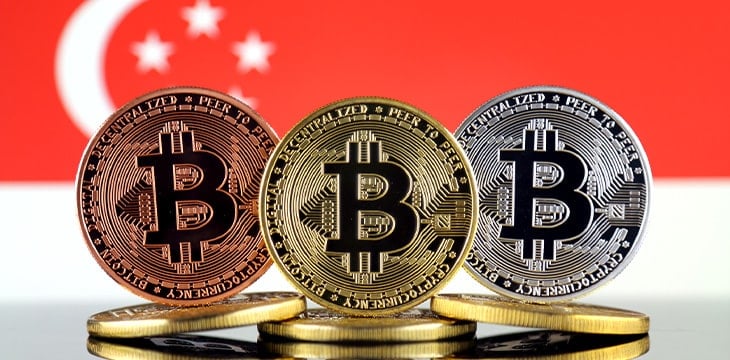Singapore Crypto Firms Under Investigation: Will Stricter Regulations Follow?


KEY TAKEAWAYS
- Singapore’s crypto sector faces heightened investigations into compliance failures and money laundering risks.
- Tokenize Xchange and the $2.2B Fujian gang scandal highlight vulnerabilities in the industry, hence the need for stricter regulations
- The Payment Services Act (PSA) enforces strict licensing, AML/CFT rules, and KYC requirements for crypto firms and investors.
- MAS is expected to tighten licensing, audits, cross-border controls, and transparency standards.
- Stricter enforcement aims to protect Singapore’s reputation while still encouraging legitimate crypto innovation.
In 2025, crypto industry is expected to face intensified scrutiny due to major investigations into local crypto firms. These probes have shed light on compliance shortcomings, potential money laundering, and the risks posed by an evolving cryptocurrency landscape, prompting regulators to consider stronger oversight.
This article provides a detailed examination of recent investigations, including high-profile cases, the existing regulatory framework, and the regulatory tightening that is likely to follow.
The Investigations: High-Profile Cases and Compliance Failures
One of the headline investigations involves Tokenize Xchange, operated by AmazingTech Pte Ltd, which is under probe for issues related to regulatory compliance and operational transparency.
While details remain sparse, MAS’s Commercial Affairs Department is focusing on whether these firms adhered to licensing rules and anti-money laundering requirements. This aligns with a broader regulatory trend targeting crypto firms that have yet to fully meet legal standards.
A landmark enforcement case was concluded in mid-2025, involving Singapore’s largest money laundering scandal, which was linked to $2.2 billion in illegally obtained assets from illicit activities. The investigation, spanning two years, exposed how crypto, cash, and luxury real estate were all entangled in laundering schemes orchestrated by the so-called Fujian gang.
The Monetary Authority of Singapore (MAS) fined nine major financial institutions, including UBS and Citigroup, a total of SGD 27.5 million (approximately $21.5 million) for gaps in AML controls that enabled these activities.
This investigation captured significant attention not only for its scale but also for how it highlighted vulnerabilities in both traditional finance and the emerging crypto sector. was among the assets seized, showing that digital assets are increasingly involved in illicit finance and thus under heightened regulatory risk.
Singapore’s Regulatory Framework for Crypto
Singapore has long championed a balanced approach to fostering crypto innovation while secureguarding the market. This balance revolves around rigorous requirements under the Payment Services Act (PSA), which mandates licensing for Digital Token Service Providers (DTSP), including platforms, wallet services, and token agents. Key regulations include:
- Mandatory AML and Counter-Terrorism Financing (CFT) measures.
- Customer due diligence and Know Your Customer () protocols.
- Transaction monitoring and suspicious activity reporting.
- Compliance with the Travel Rule for sharing customer information on qualifying transfers.
By June 30, 2025, MAS enforced a critical deadline requiring all crypto firms operating in or from Singapore, including those servicing foreign clients, to obtain the DTSP license. Non-compliance risks severe penalties and business shutdowns.
Push for Stricter Regulations and Enforcement
The investigations and money laundering cases have catalyzed calls for tougher regulations and more stringent enforcement. Several key areas are likely targets for enhancement:
- Stricter Licensing and Audits: MAS is likely to increase the scrutiny of crypto firms viewking licenses by raising operational, compliance, and reporting standards. Regular audits and closer supervision will be emphasized to ensure ongoing adherence.
- Cross-Border Transaction Controls: As many crypto transactions are global, Singapore aims to strengthen checks to align with Financial Action Task Force (FATF) standards, reducing the use of crypto for illicit cross-border finance.
- Transparency Requirements: Enhanced disclosure of crypto asset holdings, transaction details, and beneficial ownership will likely be mandated to improve traceability.
- Regulation of Emerging Sectors: As decentralized finance (DeFi) and gain prominence, the MAS plans to extend regulatory coverage to these areas to mitigate systemic risk and consumer harm.
The introduction of policies enforcing the Travel Rule more comprehensively into crypto operations further exemplifies Singapore’s commitment to curbing illicit flows while facilitating legitimate innovation.
Why is MAS Acting Now?
There are several overlapping reasons for Singapore’s tougher posture:
- AML/CFT Vulnerabilities: Cross-border, unlicensed platforms pose a greater risk because they can attract users from jurisdictions with fragileer controls, which can spill over into Singapore’s financial system. The MAS has repeatedly linked enforcement to closing such loopholes.
- Reputational Risk: High-profile collapses and scandals in the crypto world have made regulators cautious about allowing lax operators to base themselves in reputable financial centres. Singapore aims to protect its brand as a well-regulated finance hub.
- Regulatory Completeness: As regulatory frameworks (like the Payment Services Act and related rules) mature, MAS is signalling that firms must meet licensing, reporting, and governance expectations if they want to operate, particularly when serving overseas clients.
Will Stricter Regulations Follow?
MAS has already tightened the scope and enforcement of existing rules rather than drafting a sudden new statute. That approach suggests two likely directions going forward:
Enhanced Enforcement of Existing Rules and a Clearer Definition of Scope
Expect MAS to continue using licensing clarity, deadlines, and public enforcement (including fines, composition penalties, and prohibition orders) to promote compliance. The regulator’s Q2 actions show it’s prepared to levy substantial fines for AML breaches and to act rapidly when firms cross red lines.
This implies a regulatory environment where practitioners must demonstrate strong controls, robust onboarding processes, transaction monitoring, and effective governance to survive.
Tighter Licensing Hurdles for Overseas-Facing Services
MAS has signalled that offering services to foreign clients brings extra scrutiny. Firms that wish to operate cross-border will likely face higher standards, stricter proof of AML systems, and possibly limits on certain business models.
Some firms may attempt to pivot to serving only domestic customers, while others may relocate to more favorable jurisdictions. The Financial Times has reported that these changes are already prompting some players to look at Hong Kong or Dubai as alternative hubs.
That said, MAS aims to strike a balance between prudence and competitiveness. Singapore continues to viewk high-quality crypto businesses that bring talent and innovation. So, while enforcement will remain firm, the regulator is likely to keep pathways open for well-governed firms that meet strict standards, rather than shutting down the industry entirely.
What it Means for Crypto Firms and Investors
For firms, the immediate priorities are compliance and strategic clarity. platforms and token service providers must re-examine their customer geographies, AML/KYC processes, transaction surveillance, and board governance.
Those that can demonstrate mature compliance frameworks will find it easier to obtain licences or exemptions; those that cannot should expect enforcement or be forced to exit certain markets.
For investors and users, the crackdown has pros and cons. On the one hand, stronger oversight should reduce scams, fraud, and money laundering risks, thereby boosting consumer protection and market confidence.
On the other hand, it may reduce product choice or push services offshore, potentially fragmenting liquidity and raising costs for certain cross-border use cases. The net effect will depend on how well regulators calibrate rules so they curb abuses without stifling legitimate innovation.
Market and Industry Reactions
The regulatory tightening and investigations have induced varied responses within the crypto community. Many smaller players and firms without proper licensing are exiting the Singapore market or relocating their operations to more permissive jurisdictions such as Hong Kong or Dubai. This migration reflects both the cost and complexity of regulatory compliance and a desire to avoid enforcement risk.
Conversely, compliant and licensed firms are investing in robust compliance systems, personnel, and technology to meet MAS’s expectations. This professionalization is expected to foster market consolidation where more transparent, trustworthy firms thrive. While this consolidation may limit innovation among smaller beginups, it assists create a securer and more stable trading ecosystem, attracting institutional investment and public trust.
Compliance as the Key to Survival in a Tougher Regulatory Era
Investigations into Singapore’s crypto firms and major money laundering cases have highlighted fragilenesses in existing oversight and underscored the need for stronger regulation. MAS will probably follow up with stricter licensing conditions, closer supervision, and the extension of regulatory reach to emerging crypto sectors, such as stablecoins and DeFi.
These regulatory shifts, although challenging for some operators, ultimately aim to foster a transparent, compliant, and resilient cryptocurrency market in Singapore. This evolution benefits consumers, institutional investors, and the broader financial ecosystem, solidifying Singapore’s standing as a leading, well-regulated crypto and financial center.
With investigations ongoing and enforcement intensifying, crypto firms and investors should anticipate a tougher regulatory landscape ahead, where due diligence and compliance will be paramount for successful participation.
FAQ
Why are Singapore’s Crypto Firms Under Investigation in 2025?
The probes focus on compliance failures, anti-money laundering (AML) fragilenesses, and unlicensed activity. High-profile scandals, including a $2.2 billion money-laundering case, have intensified scrutiny.
What is the Payment Services Act (PSA) and Why is it significant?
The PSA is Singapore’s main regulatory framework for crypto. It requires Digital Token Service Providers (DTSPs) to be licensed and to comply with AML/CFT rules, KYC checks, and reporting standards.
Which Crypto Firms are Affected by Recent Investigations?
Tokenize Xchange (AmazingTech Pte Ltd) is under investigation. Other firms without proper licensing or robust compliance measures also face risks of fines, restrictions, or shutdowns.
How Does This Impact Everyday Crypto Investors in Singapore?
Stricter oversight should improve securety by reducing fraud and scams, but it may also limit the number of platforms available or raise transaction costs for users.
Will Stricter Regulations Push Firms Away From Singapore?
Yes, some smaller or non-compliant firms are relocating to Hong Kong or Dubai. However, licensed firms with strong compliance are expected to stay and thrive.
What Role Does Money Laundering Play in These Crackdowns?
Crypto was involved in Singapore’s largest-ever laundering scandal. Regulators now view digital assets as high-risk channels for illicit financial activity, prompting stricter rules and enforcement.
How will Cross-Border Services be Affected?
MAS is tightening rules for firms serving foreign clients, requiring higher AML standards and more transparent reporting. Firms may need to choose between local-only operations or stricter overseas compliance.
Will DeFi and Stablecoins be Regulated too?
Yes. MAS plans to extend regulation to emerging sectors, such as DeFi platforms and stablecoin issuers, as they present systemic risks if left unchecked.
Is Singapore Trying to Shut Down the Crypto Industry?
No. Singapore continues to aim to attract innovative and responsible cryptocurrency firms. The focus is on ensuring compliance, transparency, and consumer protection rather than banning the industry.





